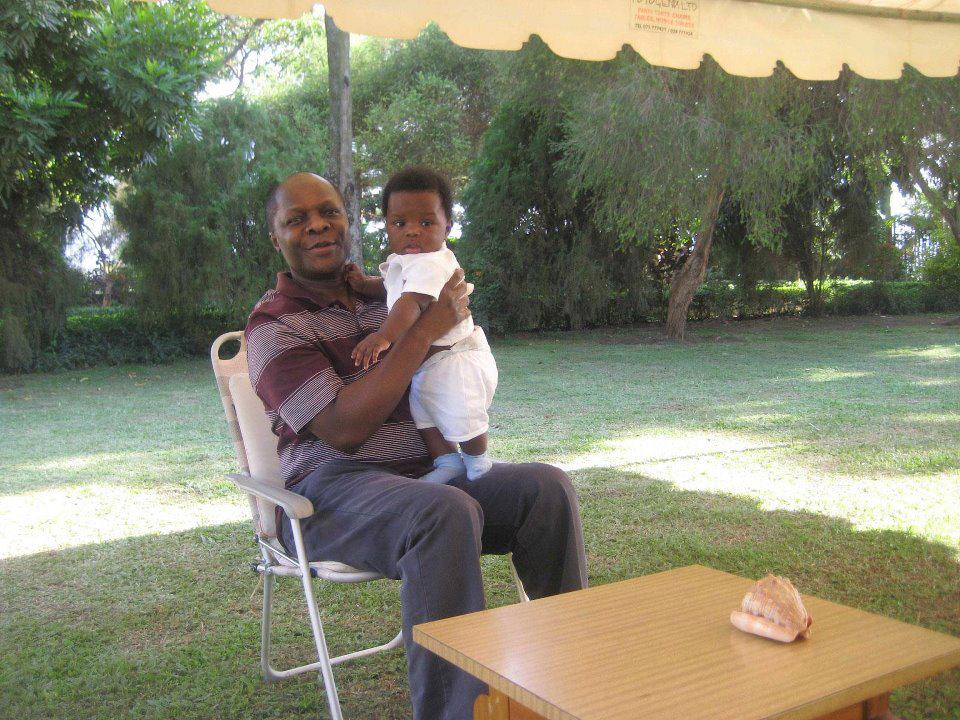Awangale Ssabasajja. The announcement that the “Buganda Kingdom” was gifted this “New Year “with a son- the second male son of the reigning monarch Ssabasajja Ronald Muwenda was a pleasant surprise. This is mainly because healthy babies are a pleasant surprise anywhere. In the case of Prince Richard Ssemakokiro- he would have been last year’s surprise except that the Kingdom’s Prime Minister (Katikiro) chose January 2012 and not July 2011 to make known his existence.
The timing of political announcements always has significance and this one is as political as they come. It’s not clear why the Kingdom waited over half a year to make the Prince’s existence (and his mother’s clan Nsenene) known. This subject, of the prince and the circumstances of his birth, will therefore be part of the lugambo or gossip for much of this week and thereafter hang around indefinitely. The Kingdom could have delayed the announcement even further. It can only be that some sort of controversy was brewing to force the announcement – facts of which will never really become clear or if they do will be blurred by contestation and spin. What is clear though is that the buzz about Prince Richard is something to be embraced. Judging from the online debate his birth raises a couple of complicated social and political issues- and it is just as well that he was born on the eve of the 50th anniversary of Uganda’s independence.
There will be two camps in Buganda that emerge from a controversy such as this one – if in fact the royal birth can be examined as something beyond the cheer of his parents and the joy of the subjects of the King. There are thetraditionalists who will support the birth of a male heir even if the King has an official wife. Polygamy is not quite an issue for Kings but much less for commoners in Uganda, where serial monogamy or the its sub-cultural cousins like the so-called “side dish” are quietly condoned. What will irk the modernists is not polygamy but the symbolic commitment of the Kingdom’s monarch to monogamy. A “moral debate” of sizeable proportions is about to rage over the His Highness Richard Ssemakokiro. And this is not because Uganda is a moral destination. It is in spite of it by and large.
A part of this is very political for the Kingdom. Ever since Apollo Milton Obote overthrew the constitution that placed Buganda second as the political authority in the territory, countless supporters of the Kingdom have hoped to restore it to its heyday. Many of those will fall within the camp of traditionalists when it comes to the newborn. They want to see a revival of the Kingdom in the mould of its old institutions centered around the absolute powers of the Kabaka including of course- his right to procreate as he chooses. The old guard at Mengo, no doubt will use this episode to defend the Kings right to do so.
Then there is the new guard- people like Daudi Mpanga, an intellectual, lawyer and family man. As the Kabaka takes a bashing from moralists, evangelicals or even the very conflicted Catholic church- the Mpanga’s of this world will be feel the most unease. This is possibly because young Baganda have to live side by side with fast changing values and probably lean toward the realization of a genuine cultural monarchy with social ambitions and not just political ones. What this means for Buganda is unclear yet. However the birth of the prince may shape some of the contours of this argument.
Is the King above the laws of Uganda?
Some of the principles of the new constitution of Uganda reject practices that discriminate against women for example. Women are legally at the same legal level with men. If so, who guarantees the status of the King as above the law? By supporting a monarch who will be accused of philandering by some women activists- are Baganda endorsing his actions or simply showing their affinity with him? If it is the latter it is very understandable but many young Baganda will be soul searching for a long time like the rest of Uganda on the meaning of marriage itself- a defining issue in our so-called modern times.
I will emphasize with the modernists. A strict conception of the monarch in the institutional form of the 60’s is unhelpful as is a vision of a monarch as absolute. The picture released of the Kabaka holding up his son- is that of a loving modern man after all. However a new vision of a modern Kabaka will have to come to terms with some of the moral and other dilemmas of marriage today including how it treats the rights of women within it as one of the many cultural surgeries it must undergo.
Over all there are also political ramifications which, I have in the past shared with some of my friends in Mengo. The failure of a viable cultural monarch to emerge is problematic because it has maintained the old fault lines of conflict between Buganda and the center. It has also held back Buganda from projecting a moral and social voice on behalf of other Ugandans. This is despite the fact that most Ugandans are part Baganda speaking the language and embracing its other cultural practices. Luganda is a powerful example of the emancipating power of Mengo. The language is the lingua franca of business and lately the spoken tongue of social and political activists protesting some of the obvious limitations of the government in power. The potential of Buganda unleashing its cultural assets positively cannot be overstated. Uganda has a state being re-made in these modern times can maintain its current political institutions but at 50 years these institutions are no competition to the influence of 300 years of culture and tradition that the King embodies. This is the same with other elder institutions like the church. The elder institutions considered by some like me as the “real” civil society will be crucial in the healing that needs to be done in the country today by giving national unity its meaning and purpose. So far they are absent or bystanders.
Controversies like the Prince’s birth if not properly resolved within this environment risk alienating the cultural goods Buganda could offer and with it the social and civil leadership Mengo could foster. And so it is with pleasure that we welcome the Prince because by the time he turns 50 and if he is ever heir- he would have lived through the redefinition of the Kingdom and the country with it.
I turn the argument over to you.










